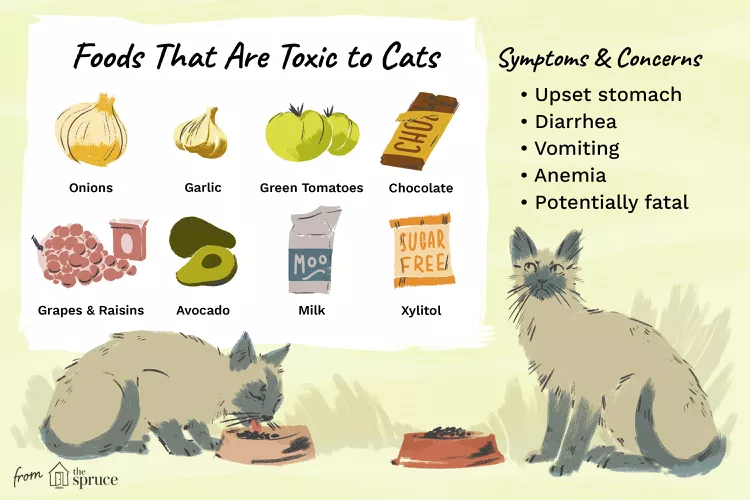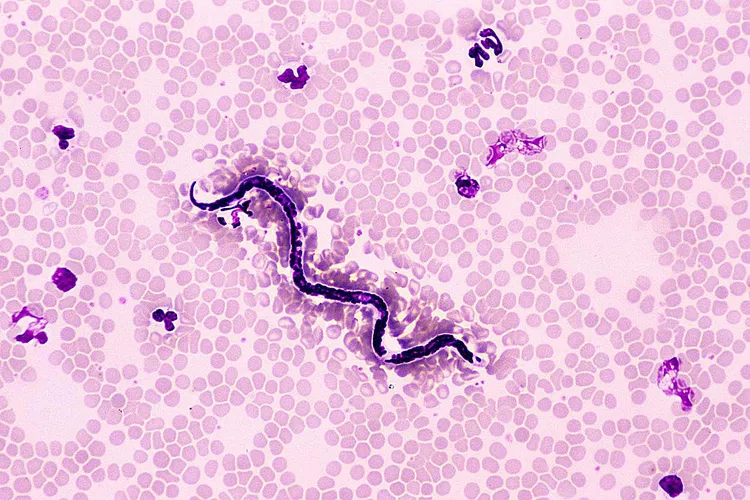
An episode of feline asthma may initially be discounted as just another hairball or a bit of food going down the "wrong pipe." Recurrent episodes of coughing, however, are likely to catch an owner's attention. In its early stages, asthma can cause a cat to cough and then appear fine, but it is a progressive condition that requires treatment. A coughing cat should be examined by a veterinarian to diagnose the issue and ensure appropriate management of the condition.
Much like human asthma, feline asthma is an allergen-driven respiratory condition that causes distressed breathing. Some cats' immune systems overreact to an inhaled allergen. The resulting immune reaction causes excess production of substances in the bloodstream that cause intense inflammation within the airways.
Early asthma symptoms may be difficult to detect, and serious attacks may not happen frequently, making it easy to write them off as hairballs. Symptoms tend to become more prevalent and more noticeable over time.
One symptom that differentiates feline asthma from hairballs or other physical obstructions is the sound of faint wheezing when your cat breathes, which may be more audible after vigorous play or running.
Swollen and inflamed airways secrete excess mucus and then become constricted, making it difficult for the cat to breathe. As a result of decreased oxygen intake, the cat will become tired quickly.
During a full-blown asthma attack, a cat will tend to hunch low to the ground with its neck and head extended to help clear the airway of mucus. The cat may gag, sneeze, cough, or even vomit. The cat may or may not expel foamy mucus.
Asthma attacks can be life-threatening, and a cat in a full-blown attack should be taken to a veterinarian immediately. Even a cat showing one or two of the early symptoms should be examined. Once diagnosed, there are things you can do to help your cat during one of these attacks.
Many of the same allergens responsible for human asthma attacks can also trigger feline asthma attacks, including:
Stress can either cause or exacerbate a feline asthma attack. For that reason, you should always try to remain as calm as possible when your cat suffers an attack.
Your veterinarian will use several diagnostic tests to diagnose asthma in your cat. The most common diagnostic tools include:
The basic and most common management strategies for feline asthma include a steroid to help reduce inflammation within the airways and a bronchodilator to keep the airways open so that the cat can more easily breathe.
Sometimes these medications are given orally, but another form of administration is with a metered-dose inhaler, such as Flovent, given through a special mask. The Aerokat Feline Aerosol Chamber was developed for this purpose. The advantage of aerosol steroid administration over pills and injections is that it goes directly into the lungs, rather than throughout the body, thus creating fewer side effects.
If your cat is having more severe attacks than you consider normal, visit your veterinarian for re-evaluation and possible adjustment of medications.
Feline asthma is a chronic, progressive disease with no cure. Your veterinarian will work to develop an ongoing medication management plan to keep your cat as comfortable as possible for its lifetime.
Once your cat is diagnosed with feline asthma, you have several options for lifestyle changes that can help reduce recurring asthma attacks, depending on the severity of the case. The first and most obvious thing you'll need to do is to try to eliminate the environmental allergens that are causing respiratory distress in your cat.
As with most feline health issues, the key to successful management of feline asthma is to know your cat well, keep your eyes and ears open for changes in the breathing, give medications as prescribed, and get veterinary care when indicated, either routine checkups or emergency intervention.
A cat can become asthmatic if it lives in an environment with allergens that trigger its immune system to overreact. To reduce the risk of your cat developing asthma, take these preventative measures:

The First 30 Days With Your New Kitten
The first month is full of changes and excitement for a kitten in a new home. Find out what to expect and what you can do for your new feline friend.
How Old Is Your Cat in Human Years?
As a cat ages, there are often behavioral and physical changes too. Find out how to convert cat years to human years and what to expect at each stage.
What to Buy for Your New Cat: A List of Essentials
Before you bring your new cat or kitten home, there are a number of things to collect or buy so your cat will feel welcomed like a family member.
Human Foods That Are Poisonous to Cats
Many human foods are toxic to cats. Avoid feeding cats table scraps. Instead, feed a nutritious cat food created for their specific nutritional needs.
Cat Food Ingredients to Avoid
When checking the nutrition content of cat food, look for ingredients that are not healthy or show it is of poor quality. Avoid these 3 ingredients.
Should You Feed Your Cat a Raw Diet?
Learn the pros and cons of raw diets for cats, and find out how to choose a raw food diet for your own cat.
Can Cats Eat Corn? Here's What A Vet Thinks
Corn is a common ingredient in cat food and can be a safe treat for cats when fed in moderation. Find out more about how to safely feed corn to your cat.
10 Obscure, Little-known Canine Facts in Honor of National Dog Day
With National Dog Day upon us, it's time to celebrate everything about our favorite pets—even the weirder stuff. Here are 10 obscure facts about dogs you probably didn't know.
The Different Types of Pet-Friendly Workplaces
Discover the different types of pet-friendly workplaces and the benefits they offer employees. Learn how to create a pet-friendly workplace and the best practices for pet owners.
Exploring the Different Types of Pet-Friendly Beaches
Are you looking for pet-friendly beaches? Learn about the different types of pet-friendly beaches, their locations, and tips for visiting them with your pet.
Why Is My Dog Lethargic?
Lethargy can be a sign that something is wrong with your dog. Find out what may be causing this lack of energy and what you should do about it.
Medications to Prevent Heartworm Disease for Dogs
Heartworm disease is a serious risk for all dogs exposed to mosquitos. Find out about the products used to prevent Heartworm disease in dogs.
Can My Dog Eat Tomatoes?
You'll want to keep Fido out of your garden since the tomato plant is toxic, but you can safely offer him ripe tomatoes as a nutrient-packed treat.
15 Best American Cat Breeds
Several cat breeds, including the American shorthair and Bengal, have their origins in the United States. Learn more about these American cat breeds.
Why Do Cats Slap Each Other?
Cats can have some quirky behaviors—one of them being slapping each other. Why do they do this and what can you do to stop it?
Skye Terrier: Dog Breed Characteristics & Care
Learn all about the Skye Terrier, an elegant breed known for its friendly and even-tempered personality with classic terrier traits.
Sloughi: Dog Breed Characteristics & Care
Learn all about the Sloughi, an ancient dog breed known for its impressive running ability, slim stature, and affection toward its family.
English Setter: Dog Breed Characteristics & Care
Learn about the English setter, an excellent hunting breed for pointing and retrieving game. It's also a popular and affectionate companion dog.
Why Dogs Bury Bones and Other Objects
If you give a dog a bone, he might bury it. Why is that? Learn about this burying behavior in dogs and what it means for your pet.
Reasons Why Dogs Run Away and How to Stop It
Dogs can escape, especially if they’re bored and not properly contained. Here are some techniques for stopping your dog from running away.